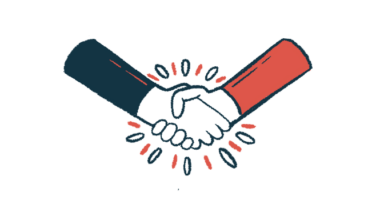Assessing the Contents of the Toolbox While in Exile

“By the rivers of Babylon
Where we sat down
And there we wept
When we remembered Zion
But the wicked carried us away in captivity
Required from us a song
How can we sing King Alpha song
In a strange land? …
So let the words of our mouth
And the meditation of our heart
Be acceptable in Thy sight, oh Far I.”
The beautiful reggae song “Rivers of Babylon,” originally by the band the Melodians and inspired by the Bible’s Psalms 19 and 137, lyrically captures the essence of a society’s exile, lamentation, and liberation. Although based on events involving the nation of Israel in the sixth century B.C., it has come to signify any people’s response to systematic, widespread oppression. How can one sing when their world is unrecognizable?
ALS can make me feel like an exile and leave me lamenting its omnipresent cruelty. I have shed tears in mourning my migratory state as I struggle with an inexplicable captivity. Unable to utter any words from my mouth, I am left making do with meditations from my heart.
Rastafarians equate externally imposed hardships with the word “Babylon.” ALS is my version.
I recently read the book “Faith for Exiles” by David Kinnaman and Mark Matlock. It attempts to address the documented precipitous decline in church affiliation by millennials and “zoomers,” or members of Generation Z. The authors make the case that a leading culprit is the proliferation of, and reliance upon, the information screens we have all grown addicted to.
They dub this phenomenon “digital Babylon” and offer a strategy for regaining traction among the “lost” members of the church. They advise Christian young adults who want to follow Jesus while remaining connected with the world they live in to “live in the world, but not of it.”
As I was mulling over the book’s sobering statistics and the purported plan to attack the problem, a non sequitur struck me. I’ve had a love-hate relationship with technology-aided communication since the early days after my diagnosis. Could my own Babylonian ALS existence be further compromised by the — careful what you wish for — double-edged-sword nature of life in an era of immediate, unverified information access? Am I being served or disadvantaged during my increasingly relied upon, and intrusive, internet dalliances?
The book suggests that five planks of scaffolding must be in proper working order to dodge the potential perils of the age of digital Babylon. Following that train of thought, I performed a pentagonal analysis of my use of information technology. In the five areas mentioned, am I swimming, treading water, or sinking? What modifications might I employ for the betterment of my true intent?
The foundation is resiliency, or emerging from life’s challenges with refined skills and greater wisdom. I’d like to think that anyone staring down ALS has a resilient identity. The book emphasizes the clutter that can accumulate from the myriad algorithms that drive search results, pop-up ads, and news feeds. My mercurial surfing — much of it done as research for this column — generates gargantuan landfills of electronic clutter. I am reminded to not let the internet know me better than I know myself.
The second practice follows logically from the first. Bolster your defenses to the incessant Wi-Fi chatter. Develop muscles of cultural discernment. Be on alert for the nefarious, shape-shifting internet Swiss Army knife masquerading as an ally. Seemingly not a day goes by without someone targeting me in an ALS-related scamming scheme. I fall down that rabbit hole more than I care to admit.
To avoid the waste of time and emotional energy that chasing a web falsehood inevitably entails, the third plank is to seek confirmation before deep investment. A real-life diverse, multigenerational consortium is the best collective sounding board. Thankfully, I have one at my disposal to assist in sorting through the never-ending, ever-growing complexities of life with ALS. Going forward, I will avail myself of their input more often and earlier.
The fourth segment of the mission is called developing vocational discipleship. A secular phrasing might be maintaining a goal-centric approach. Religious term aside, it can be translated into, “Know why you’re there, and maintain your focus.” For me, the nomenclature is appropriate. Being Christian, I want to keep all activity subordinate to the love of God and my fellow humans.
Finally, the authors espouse the embrace of countercultural missions. That means when your due diligence screams that something is off-kilter, don’t follow the tide. Don’t confuse immediacy with accuracy. “En masse” may be “in miss.” Against virtually all electronic input, I was able to secure Medicare-covered daily home aide help with toileting, bathing, dressing, and meal prep.
I am reminded of Alan Ladd’s line in the movie “Shane”: “A gun is a tool, Marion, no better or no worse than any other tool. … A gun is as good or as bad as the man using it.” As an exile in the maddening country of “En Route,” the judicious use of tools is paramount.
Note: ALS News Today is strictly a news and information website about the disease. It does not provide medical advice, diagnosis, or treatment. This content is not intended to be a substitute for professional medical advice, diagnosis, or treatment. Always seek the advice of your physician or other qualified health provider with any questions you may have regarding a medical condition. Never disregard professional medical advice or delay in seeking it because of something you have read on this website. The opinions expressed in this column are not those of ALS News Today or its parent company, Bionews, and are intended to spark discussion about issues pertaining to ALS.








Leave a comment
Fill in the required fields to post. Your email address will not be published.